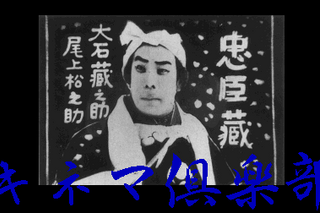Dates: Thursday, June 8, 2017 to Friday, June 9, 2017
Venue: Sainsbury Institute
City and State: Norwich, UK
Organizers: Lauri Kitsnik and Alexander Jacoby
The symposium seeks to establish a forum for re-opening the discussion on the era traditionally identified as the Golden Age of Japanese cinema, the 1950s. This is when the local film industry was entering its most prosperous phase, audiences were steadily growing, the total number of films produced was rising on an annual basis, and Japanese cinema began to have a considerable international following. The era is typically considered to have been characterised by liberal humanism as seen in the canonical works of Mizoguchi Kenji, Ozu Yasujirō, Kurosawa Akira and others. In order to balance this received understanding, the aim of the symposium is to focus attention on a number of seminal filmmakers hitherto underrepresented in Western academic discourse. This contextualised auteurist focus will be complemented by a focus on the system of stars and genres, and the interdependence between industry and the audiences. Papers will explore how individual films and production companies reworked traditional genres in the context of Japan’s recent historical experience, bringing a precise sociopolitical focus to popular genres. While widening academic attention to 1950s Japanese cinema beyond a relatively narrow focus of humanism and auteurist theories, this conference will also aim to readjust the general focus of Japanese film studies, which has recently shifted to the 1930s and 1960s.
Organised by Dr Lauri Kitsnik and Dr Alexander Jacoby (Oxford Brookes University) with support from the Sainsbury Institute.
The symposium is free to attend and open to students and scholars interested in the subject. Registration is essential as seats are limited.
Schedule
8 June 2017:
- 13:00 Registration and coffee
- 13:30 Opening remarks
- 13:45-15:15 Panel 1: Stars and celebrity
Michael Raine, Western University, Canada
Ubiquity, Propinquity, and Pose: Ishihara Yūjirō and para-cinematic celebrity culture in 1950s Japan
Till Weingärtner, University College Cork
Takamine Hideko: Images of a Film Star in the 1950s
- 15:15-15:30 Coffee break
- 15:30-17:00 Panel 2: Subjectivity in motion
Irene González-López, School of Oriental and African Studies, London University
Body and Subjectivity in the Cinema of Masumura Yasuzō
Marcos Centeno, School of Oriental and African Studies, London University
The Japanese avant-garde documentary movement and Temple Hōryū-ji. Exploring subjectivity through inanimate bodies
9 June 2017:
- 9:00-10:30 Panel 3: Auteurs revisited
Mats Karlsson, Sydney University
The Legacy of Kinoshita Keisuke: Esteemed, Popular, but Hardly Canonical
Lauri Kitsnik, Sainsbury Institute for the Study of Japanese Arts and Cultures/University of East Anglia
Auteur for Hire: Navigating Between Independent and Studio Production in the Case of Shindō Kaneto
- 10:30-10:45 Coffee break
- 10:45-12:15 Panel 4: Authorship in context
Rea Amit, Illinois College
Auteurs of Flow: The Serialized Cinematic Idiom
Alejandra Armendáriz-Hernández, University Rey Juan Carlos
Female Authorship and the Japanese Studio System The Moon Has Risen (Tanaka Kinuyo, 1955)
- 12:15-13:15 Lunch
- 13:15-14:45 Panel 5: Studio strategies
Johan Nordström, Tsuru University
Diamonds of Tōhō
Alo Jõekalda, Meiji Gakuin University
Foreign Bodies: Reframing the Taiyōzoku Film
- 14:45-15:00 Coffee break
- 15:00-16:30 Panel 6: Genre and social issues
Chika Kinoshita, Kyoto University
The Emergence of Red Light District Films: Gender and Sexuality in the Post-Occupation Japanese Cinema
Alexander Jacoby, Oxford Brookes University
Festival of Lakes and Forests: Race and Genre in Tomu Uchida’s Wild North
- 16:30-17:00 Closing remarks
